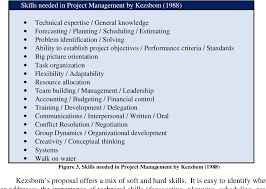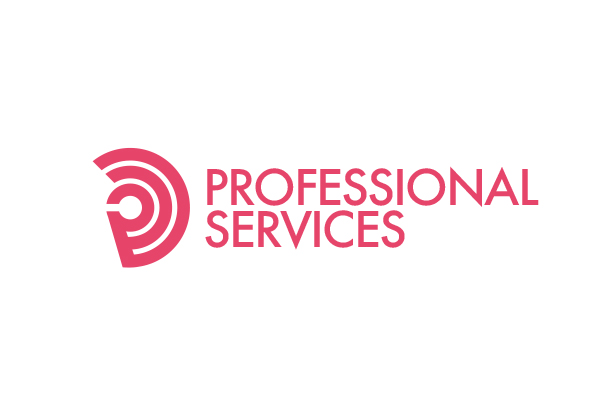
CSA
The Society of Certified Senior Advisors(CSA) is an organization that certifies, educates, and certifies professionals who work closely with older adults. The organization offers a certificate program in Working with Older Adults and the Certified Senior Advisor (CSA)(r) credential. Both certifications are widely accepted as a standard in senior care expertise.
CSAs work in a range fields and can assist senior clients with a number of concerns and problems. Their certification allows them to apply their knowledge and skills to their work and become more valuable to their clients. They can also make beneficial recommendations for seniors and clients.
CSFP
A Certified Seniors Financial Planning (CSFP), is a professional in financial services who has received additional education to achieve the title. Before you hire an advisor, make sure to review their credentials. There are many financial advisors who aren't licensed and could be fraudsters. This is why it is important to know the differences between a CSA and a CFP.

The American College offers The Chartered Advisor for Senior Living (CASL). This certification recognizes financial advisors' commitment to serving the needs and interests of seniors. To be eligible for this title, advisors must have been working with seniors clients for at most three years and comply with The American College's Code of Ethics. CASL holders need to participate in the Professional Recertification Process to keep their credentials current. They are required to pass an exam covering topics like long-term planning, pension distributions and social security.
Specialist in assisted living placement
An assisted living placement specialist is an individual who guides seniors and their families through the process of choosing an assisted living community. These individuals are often employed by an advisor company with an extensive network of senior living communities. They are familiar with the intricacies and nuances of eldercare and senior living. They have the knowledge and expertise to help families and ensure their loved one receives the best care.
Even though it can be challenging to navigate the selection process of senior living on your terms, a certified senior advisor will help you. They can help you make the best decision for your loved one and help you to downsize. This advisor is not a salesperson and will always advocate for the client's best interest.
Financial advisor
You should choose the right person to represent you if your goal is to work with a financial advisor. Look for someone who has impressive titles and designations. A designation like "senior specialist" can be convincing, but you also need to research their credentials. Many seniors have little time to build an investment portfolio, so it's important to find a professional with the proper training and experience.

The American College has awarded the Chartered Senior Living Advisor (CASL) designation. It is a mark of a financial advisor’s commitment to helping clients age with dignity. Advisors must have previous experience with senior clients and follow The American College's Code of Ethics to earn this designation. To maintain their designation, existing holders must complete a Professional Recertification Programme. Financial advisors must pass the CASL exam to become certified. This includes topics on social security, pensions, estate planning, long-term care, retirement planning, and estate planning.
FAQ
What is the difference?
An advisor is someone who provides information about a subject. A consultant offers solutions to problems.
Consultants work directly with clients to help them reach their goals. An advisor advises clients indirectly through books, magazines, lectures, seminars, etc.
How much does it cost for a consultant to be hired?
The cost to hire a consultant depends on many factors. These are:
-
Project size
-
Time frame
-
Scope of work
-
Fees
-
Deliverables
-
Other considerations such as experience level, location, etc.
How do I choose a good consultant?
There are three major factors you should consider:
-
Experience - How experienced is this consultant? Is she a beginner, intermediate, advanced, expert, or something else? Is her resume a proof of her skills and knowledge?
-
Education – What did this person learn at school? Did he/she take any relevant courses after graduating? Are we able to see evidence of his/her learning through the way he/she writes
-
Personality – Do we like this person/person? Would you want this person to work for you?
-
These questions help to decide if the consultant suits our needs. If you do not have the answer, it is worth interviewing the candidate to find out more.
Is consulting a real job?
Consulting is not only a good entry-level job for people looking to make quick money.
Consulting offers many opportunities in project management as well as business development, strategy and training. There are many projects you could be involved in, from small start-ups all the way up to large-scale multinational corporations.
Consulting gives you the chance to grow and develop your skills. This could mean learning to manage teams, negotiate contracts, write proposals, manage budgets, analyze data, create presentations, conduct market research, and much more!
Why would a company hire consultants?
A consultant provides expert advice on how to improve business performance. Consultants are not there to help you sell products.
A consultant is a person who helps companies make better choices by providing sound analysis, and making recommendations for improvement.
Consultants often work with senior management to help them understand how to succeed.
They offer coaching and leadership training to help employees achieve their highest potential.
They may advise businesses on reducing costs, streamlining processes, and increasing efficiency.
What are the benefits to being a consultant?
Consultants are able to pick when and where they want to work.
This allows you the freedom to work wherever you like, whenever you want.
It also means you can easily change your mind without worrying about losing money.
Finally, you are able to manage your income and make your own schedule.
Statistics
- According to statistics from the ONS, the UK has around 300,000 consultants, of which around 63,000 professionals work as management consultants. (consultancy.uk)
- On average, your program increases the sales team's performance by 33%. (consultingsuccess.com)
- So, if you help your clients increase their sales by 33%, then use a word like “revolution” instead of “increase.” (consultingsuccess.com)
- My 10 years of experience and 6-step program have helped over 20 clients boost their sales by an average of 33% in 6 months. (consultingsuccess.com)
- Over 62% of consultants were dissatisfied with their former jobs before starting their consulting business. (consultingsuccess.com)
External Links
How To
What does a typical day look like for a consultant?
The type of work that you are doing will affect the typical day. But, in general, you will spend your time researching, planning and meeting new clients.
You'll often have meetings with clients where you can discuss issues and solve problems. These meetings may be over the phone via email, on-line, or face-to–face.
Sometimes, you may be asked to create proposals. These are documents that outline your ideas and plans for clients. Before presenting these proposals to clients, you will usually need to discuss them with a colleague or mentor.
After all the preparation, you'll need to start creating content. This could include writing articles, designing websites or editing photos.
Depending on your project's scope, it may be necessary to do research to get relevant statistics. For example, you may need to find out how many customers you have and whether they are buying more than one product or service.
Once you have collected enough information, it's now time to present the findings to your clients. You can either present your findings in writing or orally.
After your initial consultation with clients, you need to keep in touch. For example, you could call your clients periodically to check how things are going. Or send them emails asking them to confirm they have received the proposal.
This process takes time, but it's important to ensure that you stay focused and maintain good relationships with clients.